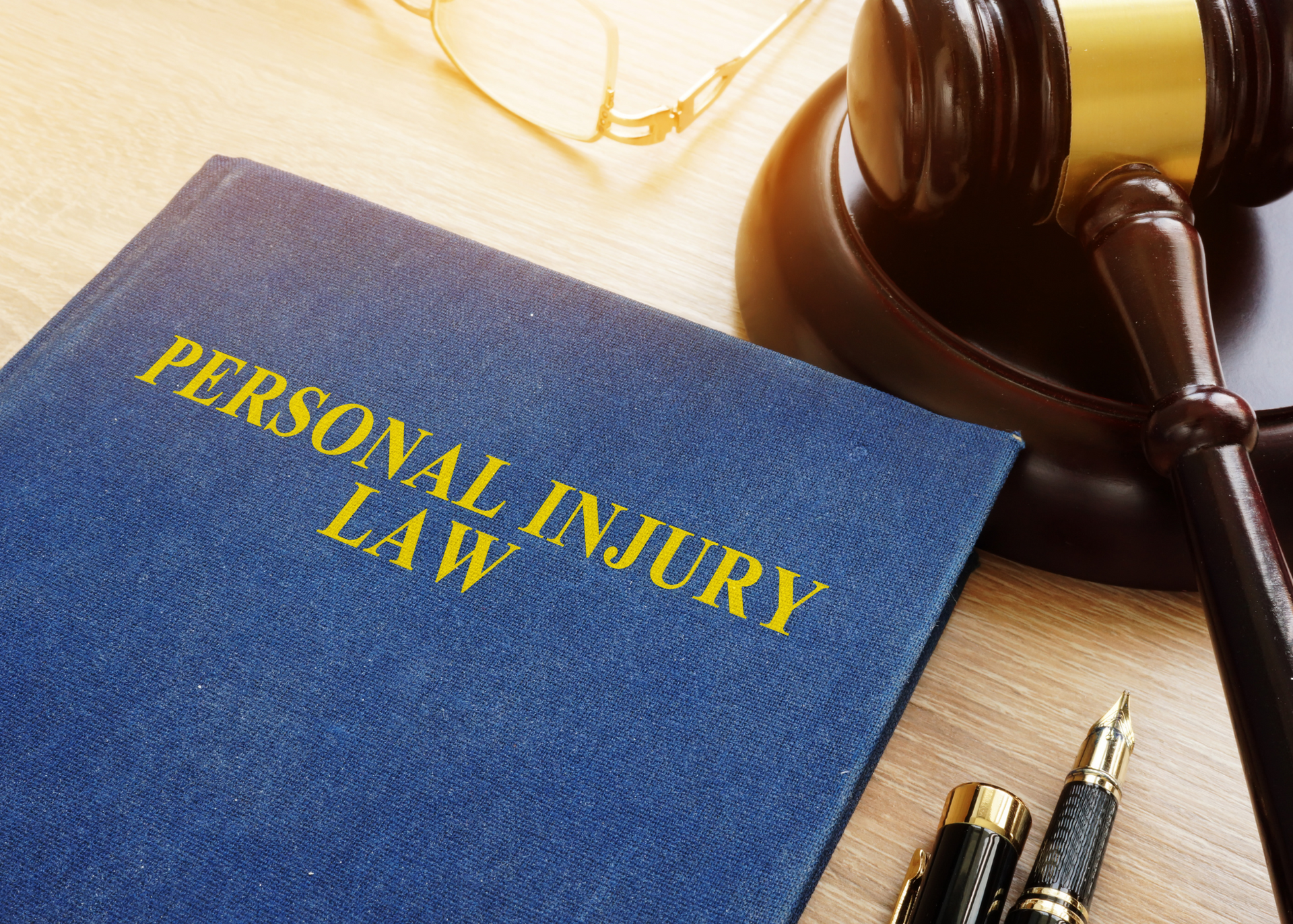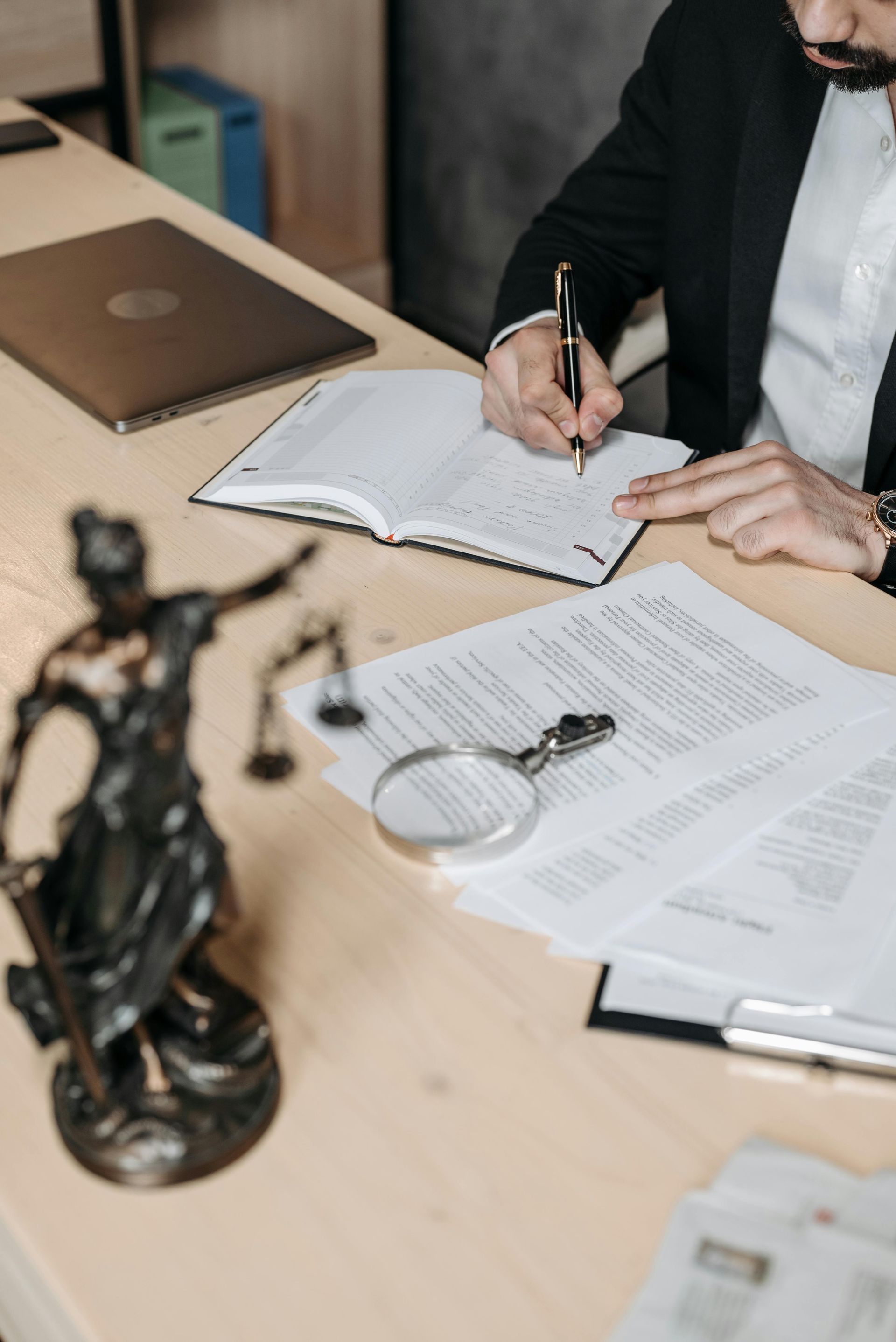What to do after being involved in a car accident that was not your fault
Being involved in a car accident is a stressful experience, especially when it’s not your fault. Knowing the steps to take immediately after the incident can help you protect your rights and ensure you receive the compensation you deserve. This guide will walk you through the essential actions to take following a motor vehicle accident caused by a negligent party.
Ensure Safety and Check for Injuries
The first and foremost priority after any car accident is safety.
Move to a Safe Location
If you’re able and it’s safe to do so, move your vehicle to the side of the road to avoid blocking traffic. Turn on your hazard lights to alert other drivers.
Check for Injuries
Check yourself and your passengers for any injuries. Even if injuries seem minor, it's important to seek medical attention as some symptoms may not appear immediately. Call 911 to report the accident and request medical assistance if needed.
Document the Scene
Gathering evidence at the scene is crucial for car accident claims and for any potential legal actions against the negligent party.
Take Photos
Use your phone to take photos of the accident scene from multiple angles. Be sure to capture:
- The position of the vehicles involved
- Damage to all vehicles
- Any skid marks or road conditions
- Traffic signs or signals
Collect Witness Information
If there are any witnesses to the accident, ask for their contact information. Their statements could be valuable when proving the negligence of the other driver.
Exchange Information
Exchange the following information with the other driver:
- Full name and contact information
- Insurance company and policy number
- Driver’s license and license plate number
- Make, model, and color of their vehicle
- Location of the accident
Notify the Police
It's important to have a police report to support your car accident claim. When the police arrive, provide them with an accurate account of what happened. Stick to the facts and avoid speculating about fault or liability.
Obtain a Copy of the Police Report
Ask the responding officer how you can obtain a copy of the police report. This document will be important when you file a claim with your insurance company and when seeking compensation for your car accident claim.
Seek Medical Attention
Even if you feel fine after the accident, it’s essential to get a medical evaluation. Some injuries may not show symptoms right away but can become serious if left untreated.
Follow Your Doctor’s Advice
Follow your doctor’s recommendations for treatment and keep detailed records of all medical visits, treatments, and expenses. This documentation will be important for your car accident claims and when working with a car accident attorney.
Contact Your Insurance Company
Notify your insurance company about the accident as soon as possible. Provide them with the necessary details and be honest about the events. Your insurance company will guide you through the claims process and help you understand your coverage.
Understand Your Coverage
Review your insurance policy to understand what is covered and what is not. This can help you better navigate the claims process and ensure you receive the compensation you deserve.
Consider Consulting a Car Accident Attorney
If you’ve been injured or if there is significant damage to your vehicle, consulting with a car accident attorney can be beneficial. An attorney can help you:
- Navigate the legal process
- Communicate with insurance companies
- Gather and present evidence
- Ensure you receive fair compensation for your injuries and damages
Finding the Right Attorney
Look for an attorney who is experienced in motor vehicle accidents and has a proven track record of success in car accident claims. Schedule a consultation to discuss your case and understand your legal options. At Wilson & Novak Law Offices we offer free case evaluations and there is no fee until we win your case, so you do not have to worry about any up front legal fees.
Keep Detailed Records
Maintaining comprehensive records of the accident and its aftermath is crucial for building a strong case. Keep copies of:
- Medical records and bills
- Repair estimates and invoices
- Police reports
- Correspondence with insurance companies
- Any other relevant documents
Be Cautious with Statements
Be mindful of what you say to the other driver, witnesses, and insurance companies. Avoid admitting fault or making statements that could be used against you later. Stick to the facts and let the investigation determine liability.
Understanding Compensation for Your Car Accident Claim
Knowing the types of compensation you may be entitled to can help you better understand the value of your claim. Compensation for your car accident claim may include:
- Medical expenses
- Property damage
- Lost wages
- Pain and suffering
- Emotional distress
Negotiating with Insurance Companies
Insurance companies may try to minimize the payout. Be prepared to negotiate and provide evidence to support your claim. If you have a car accident attorney, they can handle negotiations on your behalf to ensure you receive fair compensation.
When to Consider Legal Action
You should reach out to an experienced personal injury lawyer right away if you have been injured in a care accident that was not your fault. Even if the negligent party’s insurance company offers a what seems like a fair settlement, you may need to consider legal action, as there are many variables involved in an injury caused by an accident. Your attorney can advise you on whether filing a lawsuit is the best course of action and represent you in court if necessary.
Conclusion
Being involved in a car accident that wasn’t your fault can be overwhelming, but taking the right steps can help protect your rights and ensure you receive the compensation you deserve. Prioritize safety, document the scene, seek medical attention, and consider consulting a car accident attorney to navigate the legal process. By following these steps, you can effectively manage the aftermath of a motor vehicle accident and focus on your recovery.

We will fight aggressively for get the compensation you deserve.
Schedule a free case analysis of your personal injury case.
Merrillville Personal Injury Law Firm
Wilson & Novak Law Offices
200 W 80th Place
Merrillville, IN 46410
Business Hours
- Mon - Fri
- -
- Sat - Sun
- Closed
From our offices in
Merrillville, we serve Indiana and Illinois, including these communities:
Hammond, East Chicago,
Griffith, Highland,
Gary, Whiting, Munster, Dyer, St. John,
Schererville, Cedar Lake, Lake Station,
Crown Point,
Merrillville, Leroy,
Hobart, New Chicago, Lowell, Lake Dalecarlia, Winfield, Miller, Lakes of the Four Seasons (LOFS), Lake Village, Dune Acres, Kouts, Demotte, Ogden Dunes,
Chesterton, Town of Pines,
Portage, Porter, Wheeler,
Valparaiso, Hebron, Beverly Shores, South Haven, Michigan City, LaPorte, Winamac, Lansing, Calumet City, Lynwood, Steger, Crete, Matteson, Dolton, Blue Island, Oak Lawn, Burnham, Tinley Park, Orland Park, Chicago Heights, Homewood, South Holland, Chicago, Hazel Crest, and Markham.
All Rights Reserved | Wilson & Novak Law Offices | Video Production by Initium Creative | Website Optimization by Compass Marketing
This website constitutes attorney advertising. This website is designed for general information only. The information presented on this website should not be construed to be legal advice or the formation of a lawyer/client relationship. Privacy Policy



